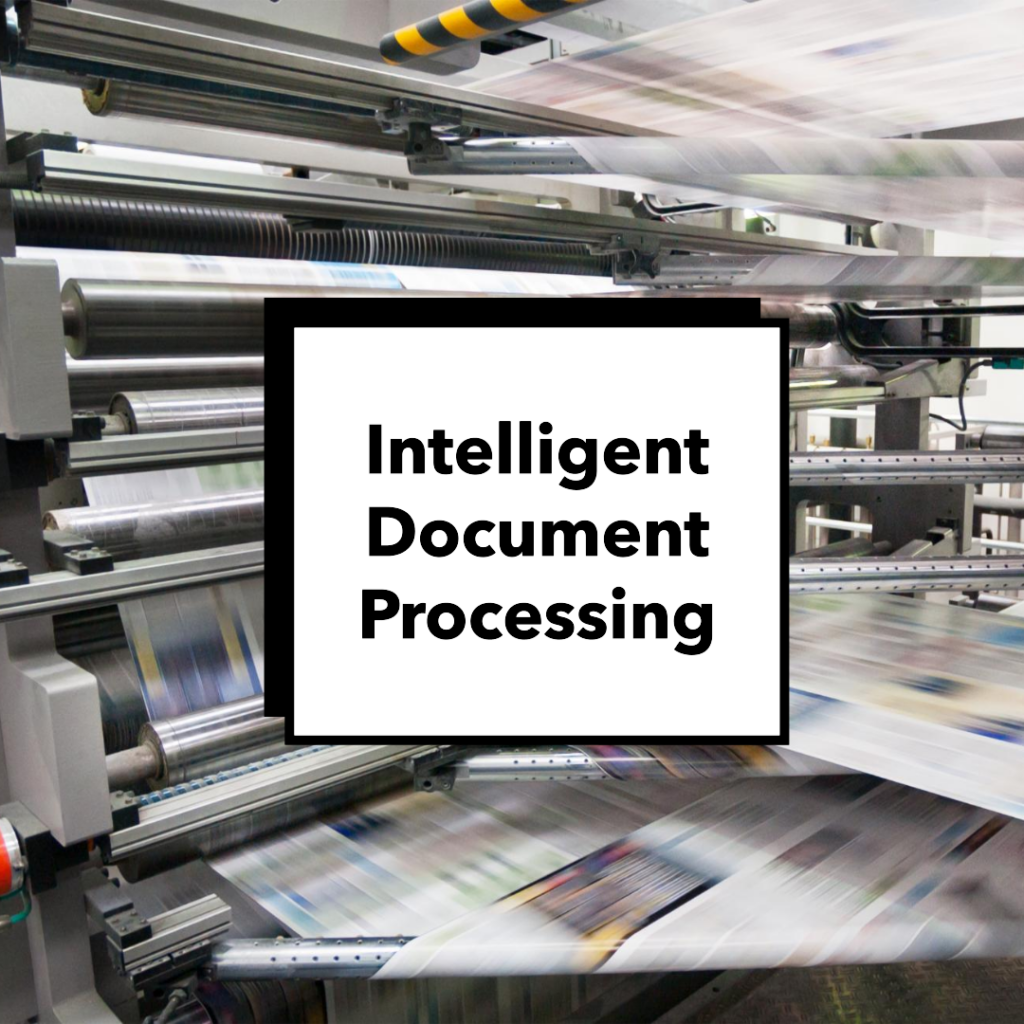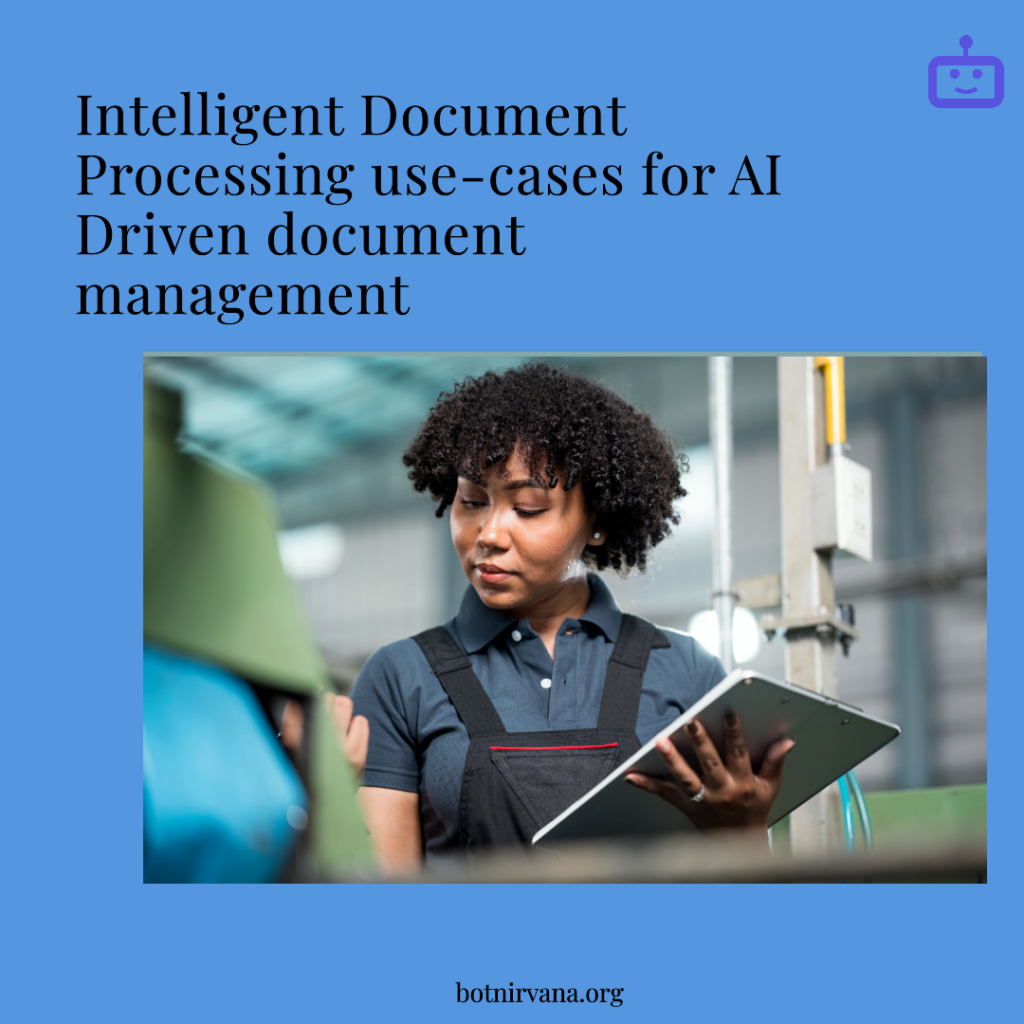Intelligent Document Processing: Streamlining Workflows with AI
Handling and dealing with extensive amounts of physical or digital documents can be overwhelming. Organizations are constantly faced with a variety of documents such as invoices, purchase orders, contracts, and customer forms on a daily basis. Intelligent Document Processing (IDP) steps in to address this challenge. By harnessing Artificial Intelligence (AI) capabilities, IDP automates the extraction and examination of data from diverse document types, thus enhancing workflows and increasing productivity.
Use Case: Automating Document Management
Businesses can streamline their document management processes and save time and resources through the implementation of Intelligent Document Processing (IDP). By leveraging AI algorithms like Optical Character Recognition (OCR), Natural Language Processing (NLP), and machine learning, IDP can efficiently extract essential data from unstructured documents and categorize them according to predefined criteria. This automated approach eliminates the necessity for manual data entry, minimizing the chances of errors and guaranteeing precise and effective document processing.
– IDP can automate invoice processing by extracting key information such as vendor name, invoice number, and total amount. This not only speeds up the payment process but also improves accuracy and reduces the chances of duplicate payments.
– IDP can automate the extraction of data from purchase orders, enabling businesses to quickly process and fulfill orders. This eliminates the need for manual data entry and reduces the risk of order errors.
– IDP can automate the classification of documents based on their type, such as contracts, customer forms, or financial statements. This allows businesses to easily organize and retrieve documents, improving overall document management efficiency.
Use Case: Enhancing Workflow Efficiency
IDP can significantly streamline workflows by automating repetitive tasks and reducing manual intervention. By leveraging generative AI, IDP can learn from historical data and make intelligent decisions, further improving efficiency and accuracy.
- IDP can automatically extract data from documents and populate it into relevant systems or databases, eliminating the need for manual data entry. This not only saves time but also reduces the chances of human errors.
– IDP can analyze document content and extract valuable insights, enabling businesses to make data-driven decisions. For example, by analyzing customer feedback forms, businesses can identify trends and patterns, leading to improved products and services.
– IDP can integrate with existing workflow management systems, allowing for seamless document processing and collaboration across teams. This ensures that documents are routed to the right individuals at the right time, improving overall workflow efficiency.
IDP Use Cases for Transforming Industries
In today’s data-driven world, many industries struggle with mountains of paperwork. Intelligent Document Processing (IDP) offers a powerful solution, automating data extraction and streamlining processes. Let’s explore how IDP is revolutionizing specific industries:
- Lending: Loan applications traditionally involve a deluge of documents. IDP automates data extraction from income statements, tax returns, and bank statements, speeding up processing and improving accuracy. This translates to faster loan approvals and happier customers.
- Insurance: The insurance industry thrives on paperwork – from applications and claims to policy documents. IDP extracts key information from these documents, accelerating processing and reducing errors. This allows faster claim settlements, improved risk assessment, and better fraud detection.
- Logistics: Shipping and logistics rely heavily on invoices, bills of lading, and other documents. IDP can automatically extract data from these documents, streamlining shipping processes, optimizing inventory management, and ensuring timely deliveries.
- Commercial Real Estate: Leases, contracts, and property records are the lifeblood of commercial real estate. IDP can extract key information from these documents, allowing for faster lease processing, accurate rent collection, and better property management decisions.
- Accounts Payable: Managing invoices is a time-consuming and error-prone task in accounts payable departments. IDP automates data extraction from invoices, streamlining the approval process, reducing manual errors, and enabling faster payments to vendors.

Benefits of Intelligent Document Processing
- Automation: IDP automates manual document processing tasks, saving time and reducing errors.
- Streamlined Workflows: By eliminating manual intervention, IDP streamlines workflows and improves overall efficiency.
- Improved Accuracy: AI algorithms used in IDP ensure accurate data extraction and analysis, reducing the risk of errors.
- Cost Savings: By automating document processing, businesses can save on labor costs and improve resource allocation.
- Enhanced Compliance: IDP can enforce predefined rules and regulations, ensuring compliance with industry standards.
Beyond Efficiency: The IDP Advantage
IDP goes beyond just improving efficiency. It unlocks a treasure trove of data trapped within documents. This data can be used for:
- Improved decision-making: Analyze trends and patterns in extracted data to make better business decisions.
- Enhanced customer experience: Faster processing times and reduced errors lead to a smoother customer experience.
- Fraud prevention: IDP can detect anomalies in documents to identify potential fraud attempts.
Conclusion
Intelligent Document Processing (IDP) is revolutionizing the way businesses manage and process documents. By leveraging AI technologies such as OCR, NLP, and machine learning, IDP automates document management processes, streamlines workflows, and improves overall efficiency. With the ability to extract and analyze data from various types of documents, IDP enables businesses to make data-driven decisions and focus on value-added tasks. Embracing IDP can lead to significant cost savings, improved accuracy, and enhanced compliance.
FAQ- Frequently Asked questions on intelligent document processing.
Q1: What is Intelligent Document Processing (IDP)?
A: Intelligent Document Processing (IDP) is a technology that uses Artificial Intelligence (AI) to automate the extraction and analysis of data from various types of documents.
Q2: How does IDP work?
A: IDP uses AI algorithms such as Optical Character Recognition (OCR), Natural Language Processing (NLP), and machine learning to extract relevant data from unstructured documents and classify them based on predefined rules.
Q3: What are some common use cases of IDP?
A: Some common use cases of IDP include automating invoice processing, extracting data from purchase orders, and classifying documents based on their type.
Q4: What are the benefits of using IDP?
A: The benefits of using IDP include automation of manual tasks, streamlined workflows, improved accuracy, cost savings, and enhanced compliance.
Q5: Can IDP integrate with existing workflow management systems?
A: Yes, IDP can integrate with existing workflow management systems, allowing for seamless document processing and collaboration across teams.
